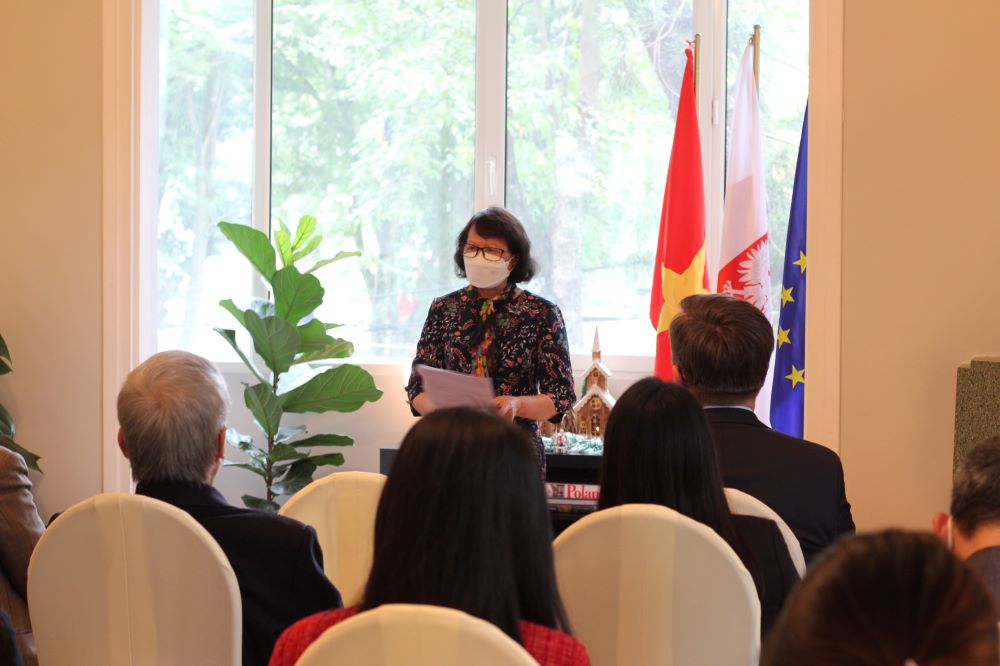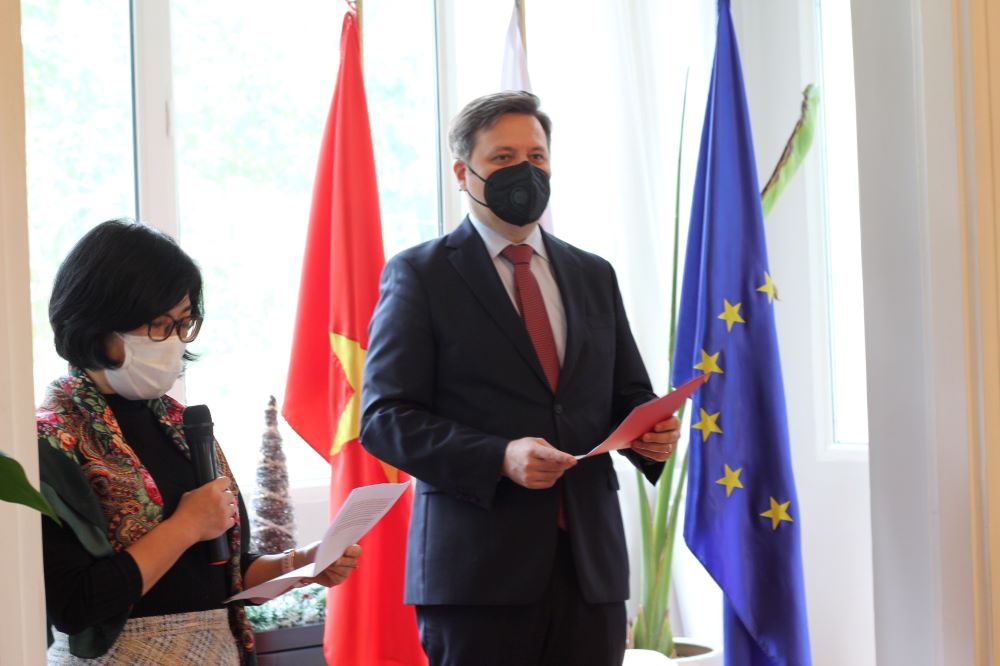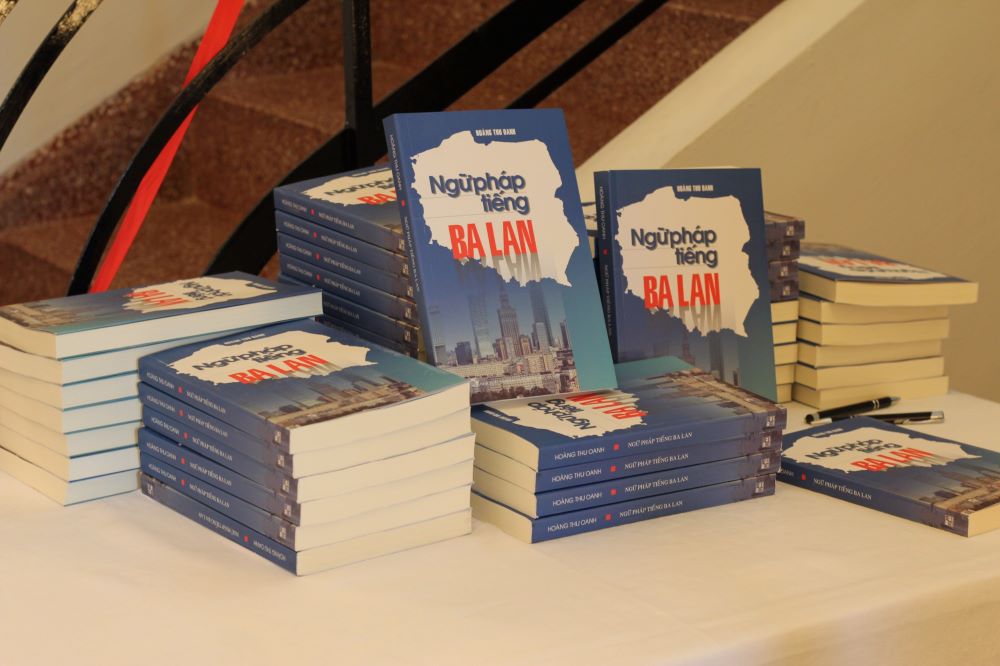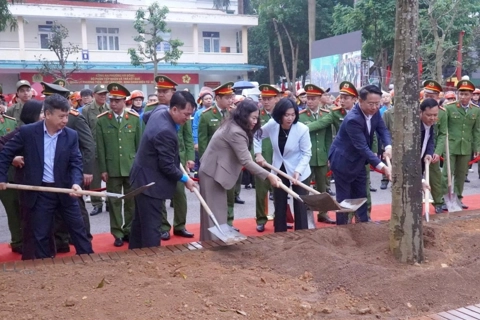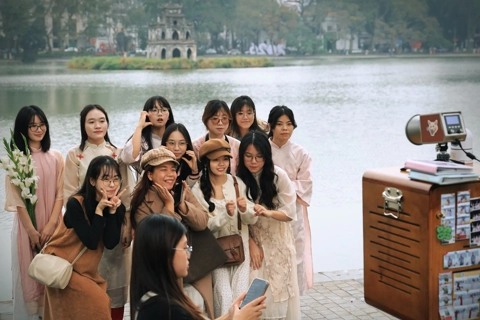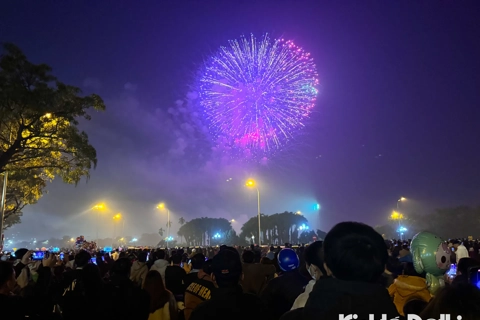Languages – gate to explore culture and bind nations: Vietnamese scholars
Vietnamese scholars believe that language largely contributes to the bilateral relations and remind them of the days they were soaked into the culture that nurtures such a mother tongue.
While showing me a family bookshelf at home in downtown Hanoi, Dr. Hoang Thu Oanh stopped at “Polish Grammar”, a book that she wrote with her whole-life experience and love for the country she considers “second home.”
| Dr. Hoang Thu Oanh at the book launch ceremony held in the Embassy of Poland in Hanoi in late December 2021. Photos: The Embassy |
Turning each page of the book, Dr. Thu Oanh told her story of learning and teaching Polish, as well as working with and exploring the language she has been involved with for more than five decades.
On the background of gentle rustling, as she turned the pages, Oanh’s voice seemed to be more emotional when she recalled the past. The strong bond with Polish, one of the world’s most difficult languages, has cost her time, efforts, and more than that, ignited a passion in her since being graduated in 1973 from the University of Warsaw, the largest and finest university and a leading research center in Poland, and earned a doctorate at the same educational institution in 1984.
Prof. Nguyen Chi Thuat, a translator of Polish literature into Vietnamese, said he admired Dr. Thu Oanh for her comprehension and academic research of the Polish language.
Dr. Thu Oanh said that it’s hardly fluent in a language if learners fail to know well about the grammar and understand the culture gives rise to that language. For that reason, she soaked up the Polish culture in a natural and exciting way as if her love for the Polish language, people, and land is endless.
After decades of working with the Polish language and culture, the newly-published “Polish Grammar” becomes her favorite book among her own dozens of different works namely dictionary, textbook, and reference book.
“Polish Grammar” contains the comprehensive system of grammar, phonetics, word types, etymology, syntax, new word structure, and spelling that enable learners to learn how to pronounce each vowel or consonant, how to create new words.
Mastering grammar helps learners understand the meaning of sentences conveyed by others, express ideas, and develop speaking skills. Grammar is essential for anyone who wants to communicate effectively in Polish, the author stressed.
| Polish Ambassador to Vietnam Wojciech Gerwel at the ceremony. |
Ambassador of Poland to Vietnam Wojciech Gerwel said grammar is an indispensable part of learning a language, including Polish. And the book “Polish Grammar” by author Hoang Thu Oanh will be a great support for those who are interested and love the Polish language as well as Polish culture.
In addition, “this book will partly contribute to the bonding and creating many opportunities to connect the two cultures and peoples of Vietnam and Poland,” the Ambassador emphasized.
Sharing the same view, Prof. Nguyen Chi Thuat said the book is so helpful for learners in Vietnam amid the rising number of learners who are following courses at Hanoi University, Hanoi University of Mining and Geology, and in dozens of language centers across the nation, and upcoming courses at Vinh University in Nghe An Province.
A large number of Polish learners in Vietnam is the result of efforts to bring the Polish language back to school by both the Embassy of Poland in Hanoi and Vietnamese partners.
According to Vietnamese scholars, reintroducing the Polish language, which was taught in Vietnam in the mid-1970s, into university curricula is necessary for tightening the bilateral relations between Vietnam and Poland. The availability of the Polish language in tertiary programs, in addition, shows the strong cooperation between the Embassy and educational institutes, said Hanoi University’s Rector Nguyen Van Trao.
The courses in Vietnam, which are held by the Polish National Agency for Academic Exchange (NAWA), have received great support from the Embassy and individuals like Ambassador Wojciech Gerwel, Deputy Head of Mission Maciej Duszyński, and Dr. Hoang Thu Oanh.
| "Polish Grammar" is helpful for Polish learners in Vietnam. |
Language of philosophy and literature
Dr. Hoang Thu Oanh admitted that the reason to write the book is her love for the language of the people with longstanding culture, the language that has been used by many famous writers and poets, and Nobel Prize winners.
“It’s interesting that language empowers you to explore the culture and it enables you to have insights into the culture through that language,” the author said, noting that she hoped her book helps remove barriers in exploring the Polish culture.
“The book is also written to meet the rising demand for the language of the country of Chopin, Mickiewicz, and 38 million people living in the Central European country,” she noted.
As stated by Prof. Nguyen Chi Thuat, Polish is the language of philosophy and literature. Polish literature is the literary tradition of Poland for the fact that most Polish literature has been written in the Polish language.
So far, six Polish writers are Nobel Prize laureates, including Olga Tokarczuk (2018), Wisława Szymborska (1996), Czesław Miłosz (1980), Isaac Bashevis Singer (1978), Władysław Reymont (1924), Henryk Sienkiewicz (1905).


